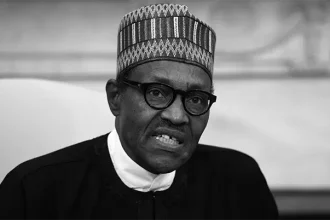Oyo State Governor Seyi Makinde has downplayed the significance of former Vice President Atiku Abubakar’s departure from the Peoples Democratic Party, stating it would not adversely affect the party’s fortunes.
The governor made these remarks during the 10th-anniversary celebration of the Deji of Akure, Oba Aladetoyinbo Aladelusi’s reign in Ondo State.
When asked about Atiku’s exit, Makinde told journalists: “Politics is a game of interest. I don’t think that will make any dent on PDP as a party. The Peoples Democratic Party is an institution. We have freedom of entrance and exit. Anyone that will hold PDP down, it is better for such an individual to quit.”
Regarding the potential threat posed by the African Democratic Congress, the governor remained unfazed: “I don’t see ADC as a threat to PDP. The goal is about the same. If you are not happy about the tempo and pace of governance, you are free to associate and see what can be done. But one thing we must all realize is that players will come and go, governors will come and go, president will come and go but our state and country will remain.”
During his lecture titled “The Role of Nigeria’s Traditional Institutions in Nation Building: Impediments, Impacts, and Prospects,” Governor Makinde strongly advocated for constitutional recognition of traditional rulers. He highlighted his administration’s efforts to integrate traditional institutions into governance:
“In Oyo State, we have been having good collaboration with traditional institutions, and we have had great results from such collaborations. That is why we are pushing for a constitutional role for them so that they don’t keep floating. They can participate and contribute, and also we can hold them accountable.”
Makinde detailed specific measures taken in Oyo State: “We institutionalised their role in the State Security Council. Our royal fathers are not bystanders. They serve as first responders, sources of local intelligence, and advocates for peace. We passed laws to remove ambiguity around succession and throne ascension. The outcome? Fewer legal battles, reduced communal tension, and enhanced legitimacy for our royal fathers.”
The governor called for stronger collaboration: “We need stronger, smarter partnerships—between the old and the new, between the traditional throne and the modern office, and between the oba’s palace and the policies of government.”
In his response, Oba Aladelusi emphasized the crucial role of traditional institutions in nation-building and commended the support from the state government and community members.
Academic contributors at the event reinforced Makinde’s position. Professor Adedayo Afe from Adekunle Ajasin University advocated for national constitutional provisions: “Law of succession should be entrenched in the nation’s constitution, not just in the state law, to check overbearing tendencies of governors over traditional institutions.” He specifically called for legislation establishing Paramountcy in Ondo State.
Ondo State Attorney General Kayode Ajulo, SAN, added: “The constitution should accommodate and recognize culture and traditions.” He proposed that traditional rulers receive dedicated funding and training in conflict resolution to enhance their governance roles.







